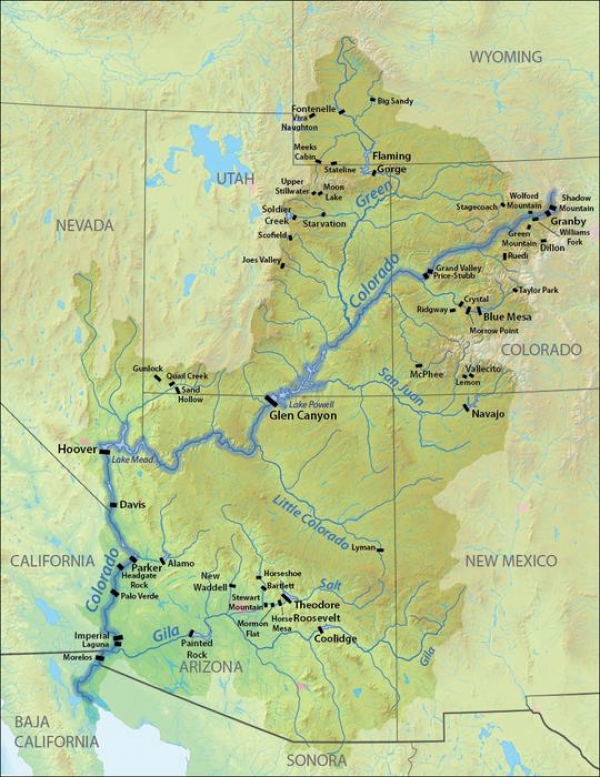From 2000 to 2021, climate change caused the loss of more than 40 trillion liters (10 trillion gallons) of water in the Colorado River Basin — about equal to the entire storage capacity of Lake Mead — according to a new study that modeled humans’ impact on hydrology in the region.
Without climate change, the drought in the basin most likely would not have reduced reservoir levels in 2021 to the point requiring supply cuts under the first-ever federally declared water shortage, according to the study, which was published in the AGU journal Water Resources Research, which publishes original research on the movement and management of Earth’s water.
“While we knew warming was having an impact on the Colorado Basin’s water availability, we were surprised to find how sensitive the basin is to warming compared to other major basins across the western U.S., and how high this sensitivity is in the relatively small area of the basin’s crucial snowpack regions,” said Benjamin Bass, a hydrologic modeler at the University of California-Los Angeles and lead author of the study. “The fact that warming removed as much water from the basin as the size of Lake Mead itself during the recent megadrought is a wakeup call to the climate change impacts we are living today.”
Read more at: American Geophysical Union
Human-driven climate change has sapped the equivalent of a full Lake Mead from the Colorado River Basin, according to new research in AGU’s journal Water Resources Research. (Photo Credit: Shannon1/Wikimedia Commons)


